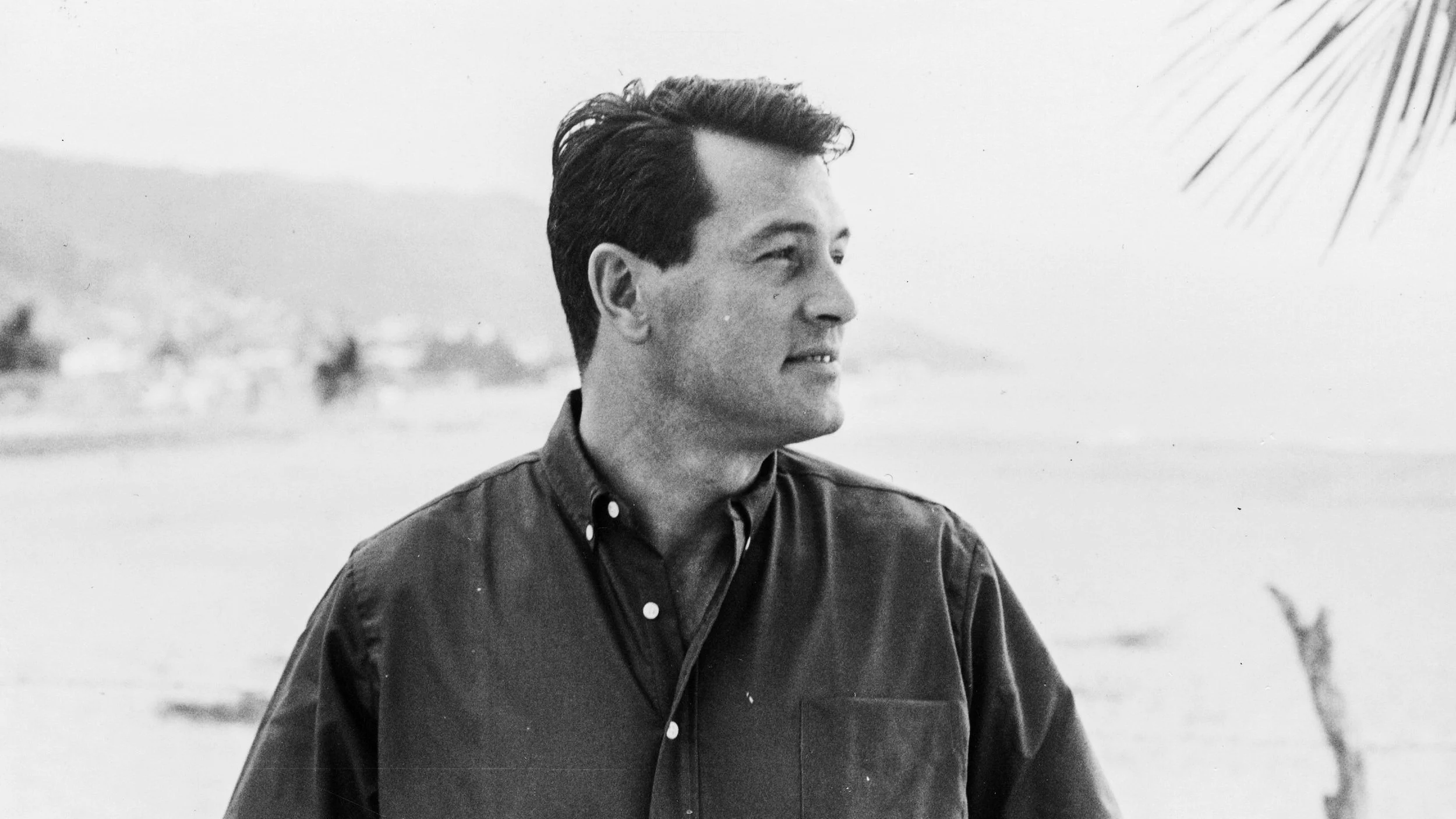Rock Hudson: All That Heaven Allowed
Stephen Kijak’s misjudged documentary surveys Rock Hudson from a 21st century perspective.
The Rock
It's extraordinary, yet also understandable, that this film by Stephen Kijak is the third documentary to have been made about Rock Hudson since his death in 1985. Its appearance surely reflects the extent to which changing times have subsequently led to a much greater acceptance of homosexuality and gay rights. In consequence, Hudson’s story has become more than an illustration of how a man with limited prospects was able to find success as a major Hollywood star. This film is indeed an approving tribute to a man whose ultimate honesty as a victim of Aids helped to play down the stigma and to encourage the changes in attitude that would in time lead to a world in which many countries have made gay marriage legal.
But, while that makes Kijak’s film welcome, it's a pity that it is not a better piece of work. I suspect that the first of the three documentaries, Mark Rappaport’s Rock Hudson's Home Movies which dates from 1992, is the best of the bunch. Certainly the film made in 2010, Rock Hudson – Dark and Handsome Stranger, which I have not seen, got a very limited release indeed and that may well be a reflection of its lack of quality. Certainly, one now finds the author Armistead Maupin and the critic Tom Santopietro who both featured in it contributing again to this latest endeavour as though they had more to offer than the earlier piece allowed.
That said, Kijak’s approach although yielding an informative film feels misjudged. Its first half covers Hudson's rise to fame aided by the gay agent Henry Willson whose clients included many handsome young actors whose sexuality was kept out of sight. The wide-ranging footage called on by the film includes material from television (Hudson was seen on This Is Your Life as early as 1952), from a 1983 interview and from clips taken from many of his films. Understandably some titles have been omitted but not all of those featured are identified by name and Kijak is far too fond of extracts in which the screenplay required Hudson to say things which in retrospect sound like comments on his hidden gay life. Admittedly something similar was done by Rappaport, but then it seemed more original and in any case Kijak does it to death - he keeps on using it even in the film’s second half in the context of Hudson's failing health.
A further issue here is the decision to present many contributions in the form of voice-overs - this applies, for example, to Allison Anders, Illeana Douglas, Piper Laurie and Linda Evans. It is not clear whether these remarks were made for the film or take the form that they do because they are observations made earlier but reused here - as is the case with the television interview in which Doris Day talks about her warm feelings for Hudson. Whatever prompted it, the result is to make us miss the images that are lacking. In contrast, a number of elderly gay men do appear on screen recalling past times with Hudson and two biographers are also seen, Mark Griffin who has written about Hudson and Robert Hofler who had made Henry Willson his subject. There is speculation about what looks to have been an arranged marriage which saw Hudson and Phyllis Gates together for three years, Armistead Maupin speaks candidly and, rather engagingly, comments about the three most famous films that Rock Hudson made for Douglas Sirk find space both for the high claims now made for them and also for the belief that they are just glossy romantic melodramas! Elsewhere comments featured can seem ill-judged (one example of that is the virtual dismissal of the films made by Hudson when he was under contract to Universal since it seems to regard Winchester 73 and Where the River Bends a.k.a. Bend of the River as no better than the rest of them). In contrast to that, however, full marks for including a clip from another Sirk movie, Has Anybody Seen My Gal? from 1952, in which James Dean appeared with Rock Hudson but in the briefest of roles – interesting too to learn that when filming Giant in 1956 Hudson formed a very negative view of Dean.
As a biographical study on film Rock Hudson: All That Heaven Allowed certainly gets by but, despite its sincerity, it often leaves one questioning the way in which the material is presented. The film’s later stages become, if only in part, a wider study of the Aids crisis in the 1980s but it then feels as though Kijak is taking on too much. It's also regrettably in keeping with the film generally that near the close it should for no good reason include brief unidentified clips from both Something of Value (1957) and The Spiral Road (1962). So, yes, I do wish that this film had presented the story of Rock Hudson more effectively. Even so, it gives a clear outline of his life, shows a somewhat unpromising young actor applying himself in a way that enabled him to become a persuasive presence on screen and celebrates Rock Hudson as a gay man whose often tragic story has nevertheless caused him to be remembered posthumously with a deal of admiration.
MANSEL STIMPSON
Featuring Mark Griffin, Joe Carberry, Tom Turner, Lee Garlington, Paul Garlington, Armistead Maupin, Howard McGillin, Peter Kevoian, Ken Jillson, Ken Maley, Robert Hofler, Tom Santopietro, Bill Misenheimer, and archive footage of Rock Hudson.
Dir Stephen Kijak, Pro Will Clarke, George Chignell, Caroline Jurriaans, Greg Berlanti and Sarah Schechter, Ph Brian Rigney Hubbard and Derek Wiesehahn, Ed Claire Didier, Music Laura Karpman.
Altitude Film Entertainment-Universal.
105 mins. UK. 2023. US Rel: 28 June 2023. UK Rel: 23 October 2023. Available on digital platforms. Cert. 15.


